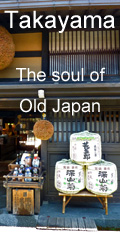| Japanese Language |
|---|
|
| | Vocabulary |
|---|
|
| | Resources |
|---|
|
| | Japanese schools |
|---|
|
| | Various |
|---|
|
|








|
|
Written by Maciamo
いらっしゃいませ (irasshaimase)
This expression is difficult to translate into English, because it has 3 different meanings. It's the polite form of "iku" (to go), "kuru" (to come) and "iru" (to stay/be). It is used to welcome customers into shops or restaurants.
The "-mase" ending is a kind of polite imperative. The closest translation would thus be "please come !" or just "welcome !". Sometimes, people will say "irasshatte kudasai", which means the same.
There is another word for welcome in Japanese : "youkoso", but it's used more in the sense of really welcoming someone as a guest or visitor, normally not as a customer.
| Featured book |
|---|
 
|
お客さん (okyaku-san)
One of the most common Japanese words, heard everyday and everywhere.
It basically means "customer" or "client", but it is used for any kind of service and there are dozens of nuances for each of them in English : patron, buyer, shopper, purchaser, clientele (e.g. of restaurants), regular (e.g. of a pub), passenger (plane, train, bus, taxi...), etc.
It also means "guest" (at home, for instance) or "visitor" (in a company), so it does not necessarily involve money.
おしゃれ/しゃれた (oshare/shareta)
About clothes :
- smart, smartly dressed, fashionable, fashion-conscious, tasteful, stylish, dressy, well-dressed, neat, snazzy, voguish, modish, chic, elegant, trendy, with-it, ritzy, up-to-date, up-to-the-minute, spruce, trim, natty, snappy, out of a bandbox, dandy, fob, coxwomb, beau, be a sharp dresser...
Japanese has adopted several of the above English words to fill the gaps of nuances. Those that are used are : chic, elegant, smart, fashion, vogue and style. There is the Japanese word (ryuukou) that also means "in vogue" or "fashionable" and proably a few others, but to talk about a person dressing well or caring about their look "oshare" is the most common.
しょうがない/仕方がない (shouganai/shikataganai)
- it can't be helped; it's no use (doing) ; there is no point (doing) ; there is no other choice ; there is nothing that can be done ; it's out of one's hand ; it's like that, it's life, it's destinty ; it's inevitable, unavoidable, unpreventable, inoxerable, inescapable, settled, predestined, destined, fated, ordained...
- What's gone is gone ; no need to cry over spilt milk ; it's (just) bad luck...
- can't stand it; being impatient; be dying to do sth ; being annoyed
危ない (abunai)
A dictionnary will translate it as "risky" or "dangerous", but it really means "watch out", "be careful/cautious" or even "let me through", "watch behind/in front of you"... In signs, it means "caution !". It can also be translated b:
- "critical; grave; uncertain; unreliable; limping; narrow; close".
Parents are often heard saying "abunai" to their children in the street when a car or a bicycle is coming. Elderly women regularily use it in the meaning "let me through" or "watch out I am coming, don't move brusquely!". That's exaggerated if we think it means "risky, risky !", as it often isn't at all. Otherwise, Japanese would feel so much scaredy-cat, as "abunai" is used all the time.
煩い (urusai)
Usually translated as "noisy". It means much more than that. Most of the time it really means "shut up !" or "be quiet !". English has several more or less polite way of saying this, but that doesn't come any where near French in diversity and intensity.
One variant is 黙れ (damare), which is less polite and really means :
- shut up, keep silent, stay mum, shut your trap, pipe down, etc.
"urusai" means all this, but remains quite polite.
馬鹿 (baka)
The only real insult to intelligence in Japanese. This is one of the best examples of how Japanese content themselves of a single words, while Westerners long for extreme diversity. That's a very interesting cultural difference. Moreover, Japanese being so polite and respectful, they couldn't have very offensive words.
In English, "baka" (non or adj.) can mean :
- Adjective => stupid, foolish, unintelligent, dumb, dense, brainless, retarded, dull(-witted), slow(-witted), half-witted, simple(-minded), thick, dim, dopey, moronic, imbecilic, cretinous, thick, idiotic, silly, absurd, ridiculous, cock-eyed, daft...
- Noun => fool, idiot, nitwit, dunce, dullard, dunderhead, dolt, dim-wit, dope, thickhead, nincompoop, and so on and so forth.
Popular Content on Wa-pedia.com
|